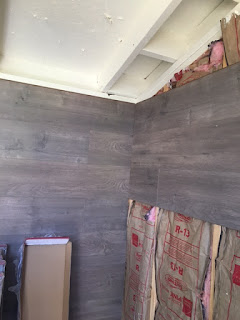I read a newspaper story over the weekend about how artists turn to nature when they are looking for peace, solace, and rejuvenation. The piece was in the Santa Cruz Sentinel. The author was Dan Haifley of the O'Neil Sea Odyssey, essentially a classroom on a catamaran for kids. The youngsters sail the Monterey Bay National Marine Sanctuary and get hands-on lessons about ocean life, the living sea, and the environment. Haifley referenced Jack Kerouac's book Big Sur, the autobiographical novel about his time spent at Lawrence Ferlinghetti's California cabin near the sea. It was there that Kerouac struggled with his alcoholism and his unwanted celebrity, and hoped to gain peace from the solitude, the ocean, and the wilderness.
Nature, Haifley writes, is Kerouac's happiness. Certainly that is the case in the The Dharma Bums, a book about hiking, communing with nature, and Zen Buddhism. And it is true that Kerouac hoped the nature he discovered during his time in Big Sur would heal him. Haifley suggests the more we disconnect from nature the more difficult it is to find solace. I think he's right. But I would argue that nature may not be the sole catalyst here. It's seclusion, the inward gaze that nature so beautifully permits and that is the true healer.
My continuing plans for a writer shed meet that need.
I love to hike, walk the woods. Although I don't do it enough, I know that it brings me balance. And although I love the trees, the dirt, and the earthy smells, I know that the forest, the ocean, the mountains, and the prairies are only the vehicle for being alone. It is "aloneness" that brings me back to center.
In the world of Twitter, constant news feeds, cell phones, email, and texting, solitude is the peace that refocuses the soul. The writer shed is that refuge. It's a place to work but also a place to think, to get lost in my own mind, to find my inner woods.
I suggest it is another of Kerouac's books that sells this idea more strongly. Most of what is written in the first part of Desolation Angels is taken directly from Kerouac's journal when he was a fire lookout at Desolation Peak in the North Cascades of Washington state. He was there for two months in the summer of 1956, much of it alone on the mountain, sometimes for weeks at a time. The book ultimately is a study in human solitude, Kerouac's opportunity to be silent, to think, to write in that remote mountain top. All alone. It was his Walden.
The writer shed is my Walden, my Desolation Peak.
"I came to a point where I needed solitude and just stop the machine of thinking and enjoying what they call living, I just wanted to lie in the grass and look at the clouds." —Jack Kerouac
Here's a piece from the NY Times on hiking to Desolation Peak: Climbing a Peak that Stirred Kerouac.
Below is a short video on the writer shed progress. Almost there.










